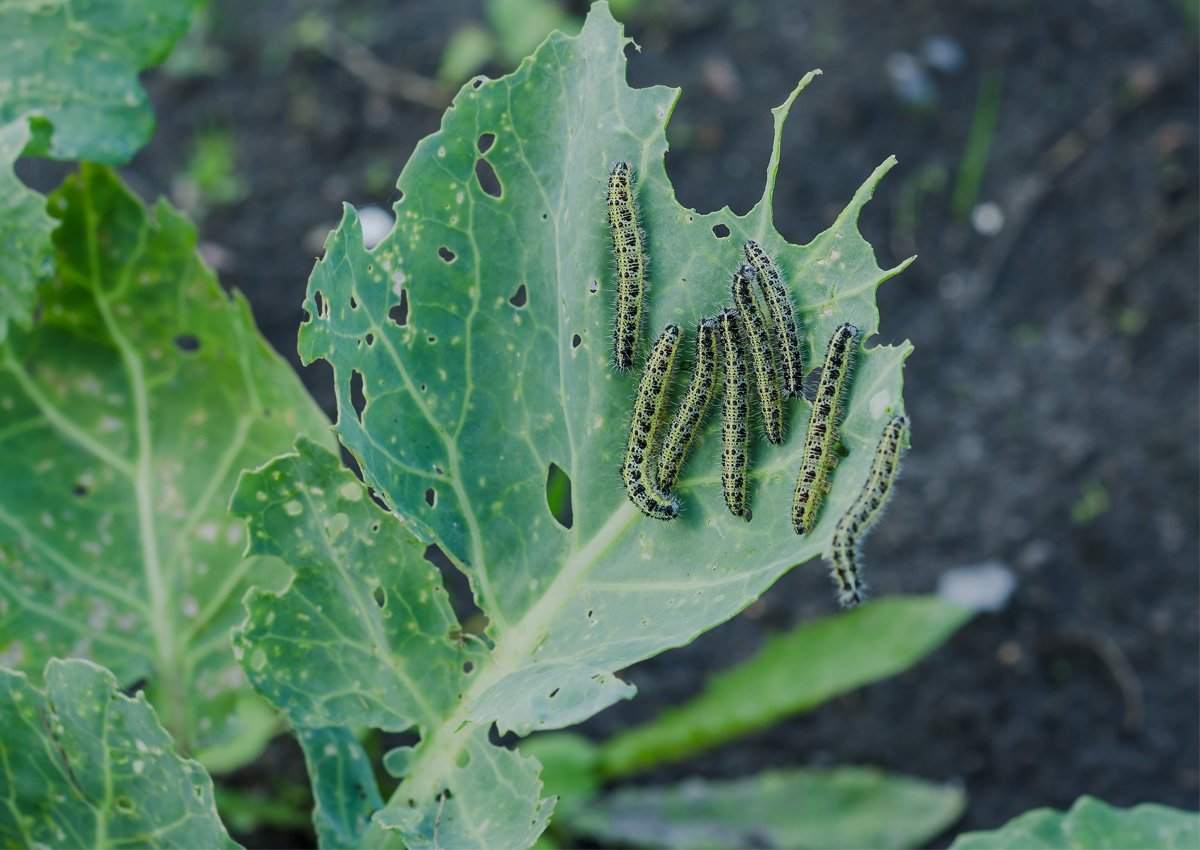
Research Shows Plants Can Prepare for Insect Attacks
October 27, 2021| |
Plants are constantly attacked by insect pests, and they have mechanisms to defend themselves, including chemicals or sturdier leaves. Now, researchers have found that when wild black mustard plants defend themselves against an initial enemy, they already anticipate the need to later fend off other, different enemies and prepare for the most likely sequence of attackers.
Researchers Daan Mertens and Maite Fernandéz de Bobadilla from the team headed by Erik Poelman in the Laboratory of Entomology at Wageningen University & Research (WUR) showed how a plant's strategy works. They observed the defense mechanism used by black mustard on 90 combinations of insect attacks and linked these results to three years of research into the frequency of the interactions on plants in the wild. Similar tests in the past were limited to five combinations only.
Poelman explains that the old idea that insects feeding on plant sap triggers a reaction that then diminishes a plant's potential defense against caterpillars has turned out to be too simple. Their work has confirmed the plants' physiological reactions against aphids and caterpillars, and also reveals that in many instances the plant does not become more susceptible to insects with a different feeding pattern. "Particular combinations or sequence of insects in the wild appear to be better predictors of resistance than the characteristics of the individual insect species," Poelman added.
For more details, read the article on the WUR website.
| |
You might also like:
- Lack of 'Happiness' Hormone Makes Rice Plants Less Attractive to Insects
- Scientists Find a Gene for Boosting Plant Pest Resistance
- Fighting Insect Pests with Genetic Targeting
Biotech Updates is a weekly newsletter of ISAAA, a not-for-profit organization. It is distributed for free to over 22,000 subscribers worldwide to inform them about the key developments in biosciences, especially in biotechnology. Your support will help us in our mission to feed the world with knowledge. You can help by donating as little as $10.
-
See more articles:
-
News from Around the World
- FAO Launches World Map of Salt-Affected Soils
- Global Seed Conference on Green Development of Seed Industries
- Experts Highlight Importance of Coordinated GM Seed Policies in African Region
- UC Riverside Scientists Figure Out How to Switch Plant Response to Light
- Study Identifies Proteins that Support Photosynthesis in Iron-Deficient Plants
- University of Georgia Reports Plant-based Jet Fuel could Reduce Emissions by 68%
- 4th Asian Short Course on Agri-biotech, Biosafety Regulation, and Communication (ASCA2021)
- Research Shows Plants Can Prepare for Insect Attacks
-
Research Highlights
- Scientists Use Mix Methods To Cut Breeding Time by One Generation
- Drought-Tolerant Soybean Performs Better At Major Plant Stages, Study
-
Plant
- Repair-seq Boosts Prospects for Gene Editing Technology
-
Health
- Strategies for Communicating with People Who Are Not Vaccinated to Build Confidence in COVID-19 Vaccines
-
Read the latest: - Biotech Updates (February 18, 2026)
- Gene Editing Supplement (January 28, 2026)
- Gene Drive Supplement (February 22, 2023)
-
Subscribe to BU: - Share
- Tweet

